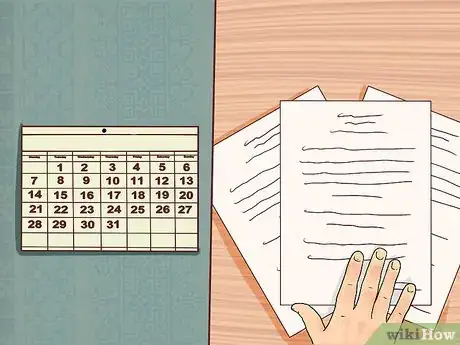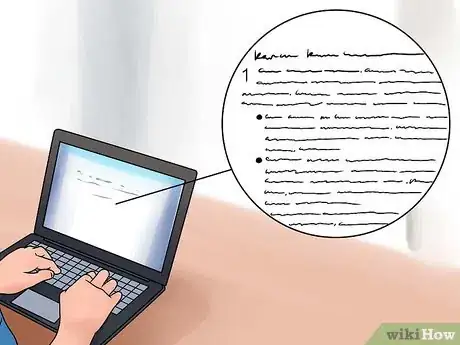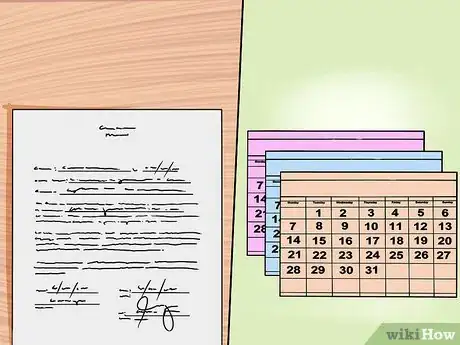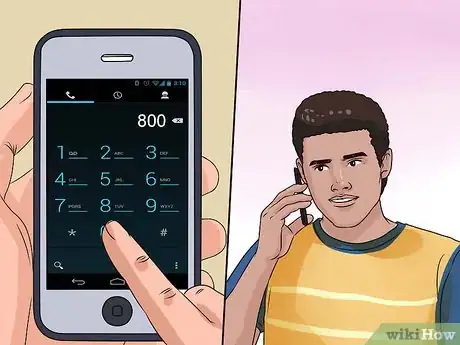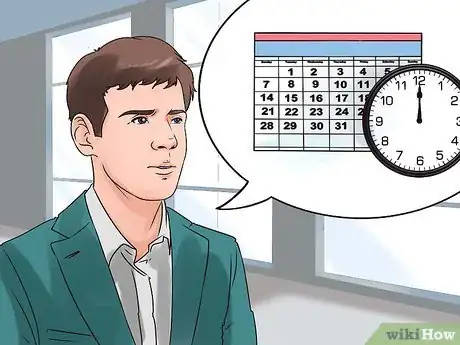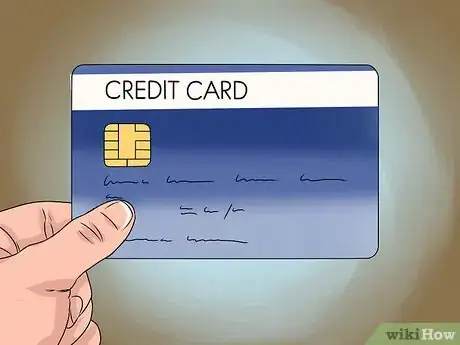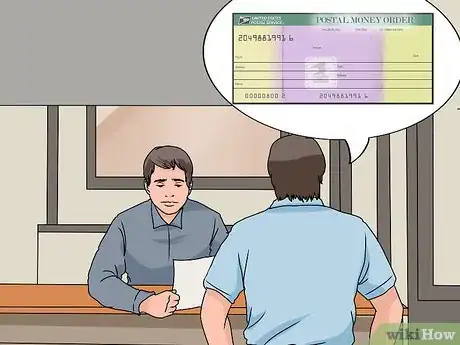This article was co-authored by Clinton M. Sandvick, JD, PhD. Clinton M. Sandvick worked as a civil litigator in California for over 7 years. He received his JD from the University of Wisconsin-Madison in 1998 and his PhD in American History from the University of Oregon in 2013.
There are 7 references cited in this article, which can be found at the bottom of the page.
This article has been viewed 45,496 times.
If you don’t have the money when rent is due, then you need to think fast and contact your landlord. Try to negotiate a delayed payment. In order to be successful, you need to make sure that you will have the full amount of rent at a later date. If so, then write your landlord and ask if you can delay payment.
Steps
Writing to Your Landlord
-
1Figure out when you will have the money. Before contacting your landlord, you should figure out when you will get the money to pay your rent. You don’t want to negotiate until you are absolutely sure of the date on which you will have enough money to pay rent.
- For example, your paycheck might be delayed because you have started a new job and your company doesn’t pay until three weeks have passed. In this situation, you can be certain of the date on which you will have the money.
- By contrast, if you simply have no money, then there is little point negotiating a delayed payment. Effective negotiation will require that you give the landlord a date for making the payment.
- If you don’t have the money, then consider other options.
-
2Write to your landlord. As soon as you realize you can’t make rent, you should write a note or email to your landlord. Ask if you can pay at a later date.[1]
- Open the letter by stating why you are writing: “I’m writing to see if I can delay my rent payment. It is due the first of March.”
- If you can make a partial payment upfront, then include that information in the letter. Offering even a partial payment signals your good faith attempt to pay your rent.
Advertisement -
3Explain when you can pay. Also give the date when you can make payment.[2] If you cannot make payment when it is due, then your landlord will want to know when you can pay.
- “The earliest I can make payment is the 15th.”
-
4Give a reason why you need a delay. Your landlord will also want to know why you are late with the payment. Accordingly, you should give a reason in your note or email.[3]
- Be careful about the reason you give. The landlord will want to see that the reason is a one-time event and not likely to recur. For example, if you don’t have any money because you started a new job, then the landlord might give you a break.
- However if you don’t have the money because you lost your job, then the landlord might suspect that you won’t find another job and therefore will never pay rent again.
-
5Promise that you will never be late again. Your landlord also wants a reason to believe that you won’t continually ask for extensions on your rent payment. For this reason, you should make a promise never to ask for another extension.[4]
- For example, you can write, “I promise not to ask for an extension again. Once I get my first check, I will be able to pay rent on the first of the month, as agreed to in our lease.”
-
6Ask the landlord to contact you. Your letter or email is the opening move in the negotiations. Politely ask the landlord to contact you with a decision about whether you can delay your rent payment.
- For example, you can write, “I hope you will agree to the two-week delay. Please contact me as soon as possible at [insert phone number]. If you don’t agree, then we can discuss other options.”
Negotiating a Delayed Payment
-
1Wait to hear from your landlord. Your landlord will either agree to let you delay payment or demand that you make payment immediately. You should be prepared to negotiate for a delay if the landlord rejects your request.
- If you have been a good tenant, who is rarely late with rent, then your landlord should be willing to accept a delayed payment—especially if you have a believable reason for being late.
- Also realize that it is unlikely that your landlord will move to evict you. Technically, he can. However, as a practical matter, an eviction proceeding will take too much time. For example, the landlord will have to file a lawsuit in court, and you will have some amount of time (usually several weeks) to respond to the lawsuit. By that point, you probably will have your rent money.
-
2Be brave. Sometimes people are afraid to negotiate. Unfortunately, this is often true of women. People fear negotiation for different reasons. For example, they might fear coming across as pushy. Or they are afraid of angering their landlord.[5]
- You shouldn’t let these fears get in the way of negotiating for a delayed rent payment. In particular, although asking for the delay might anger your landlord, missing the payment will anger him as well. You really have no choice but to explain your situation and try to get an extension.
- Furthermore, look at the negotiation as an opportunity to work on your negotiating skills. People can benefit from negotiating in a variety of contexts: negotiating for a higher salary or a lower purchase price for a car. Consider this negotiation with your landlord as a learning experience.
-
3Make your counter-offer. Your landlord may call you and demand full payment on time. You need to be prepared to make a counter-offer. Try to give the landlord a reason to accept the late payment.
- For example, you could say, “I’m sorry, but like I said in my letter I don’t have the money right now. But if you’ll let me pay on the fifteenth, then I’ll pay an extra $50.”
-
4Ask for a waiver of late fees. Your lease probably allows the landlord to add late fees or to charge interest for each day the rent is late.[6] However, you should try to get these waived.
- On the one hand, you don’t want to press your luck. If you are having a hard enough time getting the landlord to accept the delayed payment, then you might want to remain silent on late fees.
- On the other hand, if your landlord readily agrees to the delay, then gently ask if you can get the fees waived as well.
Considering Other Options
-
1Ask family or friends for a loan. Instead of asking for a delay, you might want to get a loan from a friend or family member. Ask for an interest-free loan. Your family and friends might understand your financial difficulties and be happy to help.
- Whatever you do, you should never borrow from “pay day” lenders. These outfits often charge outrageous interest rates, more than 200% in some cases. If you take out one of these loans, then you will probably fall even deeper into debt.[7]
- Instead of going to a pay day lender, check with your bank or credit union. They might make short-term loans for a reasonable interest rate.
-
2Pay online with a credit card. You also can pay your rent using a credit card. There are many websites out there which will send a check to your landlord. All you have to do is log onto the website and give your landlord’s address. Then you pay with your credit card.
- Some companies which provide this service are RadPad and RentShare. They take a small processing fee in exchange for their service.[8] RadPad, for example, charges 3.49% for most credit cards, though payment with debit cards has no fee.[9]
- Admittedly, you will have to pay interest on a credit card purchase (unless you pay the amount off in full). However, credit card interest rates are still preferable to those of pay day lenders.
-
3Raise money fast. You might have no choice but to sell possessions to raise money for your rent. In that case, go through your apartment and find objects that look valuable. Typically, you can sell jewelry and electronic equipment the easiest.
- Next, find a place to sell the goods. You can always sell items on eBay. However, you might have to wait a while to get payment, so this might not be the best option.
- Instead, look in your phone book or search online for the nearest pawnshop. At the pawnshop, you get a loan for the value of the items you deposit. You will get a ticket in return. When you have enough money to pay back the loan, you can return to the pawnshop and get your stuff back. If you never return, then the pawnshop keeps the items.[10]
- You might also advertise on Craigslist. State that everything is for sale “as is” and for cash only. Don’t accept checks as they might bounce.
-
4Pay with a money order. If you don’t have enough time to deposit cash into your checking account, then go to your nearest Post Office branch and get a money order. You can make out the money order to your landlord and drop it off.
References
- ↑ http://www.nolo.com/legal-encyclopedia/free-books/renters-rights-book/chapter3-5.html
- ↑ http://www.nolo.com/legal-encyclopedia/free-books/renters-rights-book/chapter3-5.html
- ↑ http://www.nolo.com/legal-encyclopedia/free-books/renters-rights-book/chapter3-5.html
- ↑ http://www.nolo.com/legal-encyclopedia/free-books/renters-rights-book/chapter3-5.html
- ↑ http://www.moneyunder30.com/how-to-negotiate-anything
- ↑ http://www.nolo.com/legal-encyclopedia/free-books/renters-rights-book/chapter3-5.html
- ↑ http://www.nolo.com/legal-encyclopedia/reasons-avoid-payday-loans.html
- ↑ https://www.nerdwallet.com/blog/credit-cards/pay-rent-credit-card/
- ↑ https://www.onradpad.com/paymyrent


